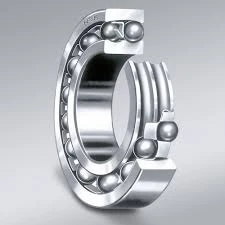
des . 04, 2024 23:22 Back to list
high temperature deep groove ball bearing
High Temperature Deep Groove Ball Bearings An Overview
High temperature deep groove ball bearings are specialized components designed to operate under elevated thermal conditions while ensuring optimal performance, longevity, and reliability. These bearings find application in various sectors, including manufacturing, automotive, aerospace, and renewable energy, where machinery and equipment are subjected to high operational temperatures.
Understanding Deep Groove Ball Bearings
Deep groove ball bearings are one of the most commonly used types of bearings worldwide, characterized by their deep raceway grooves. These grooves can accommodate both radial and axial loads, making them versatile for different applications. The design allows for multiple sizes of balls to be housed within the raceways, resulting in minimized friction and increased speed capabilities. Standard deep groove ball bearings are typically made from chrome steel, but when it comes to high-temperature environments, materials and lubricants must be carefully chosen to ensure resilience against degradation.
High Temperature Challenges
Under high temperature conditions, conventional bearings can experience rapid wear, lubrication breakdown, and even structural failure. Traditional lubricants may evaporate or degrade, leading to increased friction and heat production, which can eventually cause bearing seizure. Additionally, thermal expansion can affect the tolerances of bearings and associated components, potentially leading to catastrophic failures.
Choosing the Right Materials
To address these challenges, high temperature deep groove ball bearings are manufactured using advanced materials capable of withstanding elevated temperatures. Common materials include stainless steel, ceramic, and specialized alloys that exhibit exceptional thermal resistance. Ceramic balls, for example, offer excellent thermal stability, lower density, and reduced friction, making them suitable for high-speed applications. Conversely, stainless steel provides strength and corrosion resistance, making it beneficial in harsh environments.
Moreover, the bearing raceways can be surface-treated to enhance hardness and wear resistance, allowing them to perform efficiently in high-temperature environments
. This combination of material choice and surface treatment plays a critical role in ensuring the longevity and operational efficiency of the bearings.high temperature deep groove ball bearing

High Performance Lubrication
Lubrication is another critical aspect when it comes to high temperature deep groove ball bearings. Traditional lubricants such as mineral oils may not perform adequately under extreme conditions. Instead, high-performance synthetic oils or greases are utilized, which can retain their properties over a broader temperature range. These lubricants reduce friction and wear while providing excellent thermal stability, thereby prolonging the life of the bearings.
Specialized high-temperature lubricants are formulated to withstand temperatures well above standard operating conditions, often exceeding 200°C (392°F) and in some cases reaching up to 350°C (662°F). The right lubricant not only improves the performance of the bearings but also mitigates the risks associated with thermal expansion.
Applications and Advantages
High temperature deep groove ball bearings are widely used in several applications including electric motors, pumps, compressors, and turbines, particularly in industries where heat generation is a concern. For instance, in the automotive sector, these bearings are crucial for components such as turbochargers and exhaust fans, which operate under high thermal loads.
The advantages of using high temperature deep groove ball bearings are manifold. They offer higher operational reliability, shorter maintenance intervals, and extended service life, which can lead to significant cost savings over time. Additionally, these bearings contribute to the overall efficiency of machinery, enhancing productivity and reducing downtime.
Conclusion
In summary, high temperature deep groove ball bearings are an essential component in modern machinery that faces harsh thermal conditions. The choice of advanced materials, specialized lubricants, and innovative designs enhances their performance, ensuring reliability across various applications. As technology continues to advance, the development of high temperature bearings will play an integral role in further optimizing machinery efficiency and longevity. Therefore, understanding the specific requirements and conditions under which these bearings operate is crucial for engineers and designers in various industries aiming to enhance performance and durability in high-temperature applications.
Latest news
-
The Future of Deep Groove Ball Bearings For Extreme Applications
NewsJul.31,2025
-
Self-Lubricating Bearings: The Future of Agricultural Machinery Efficiency
NewsJul.31,2025
-
Nanotechnology in Ball Bearing Machines: The Future of Friction Reduction
NewsJul.31,2025
-
How Deep Groove Ball Bearings Are Tailored for Different Uses
NewsJul.31,2025
-
Energy-Efficient Machinery Bearings: Reducing Power Consumption in Large-Scale Ball Mills
NewsJul.31,2025
-
Deep Groove vs. Angular Contact: Which Ball Bearing Wins in High-Speed Applications
NewsJul.31,2025
